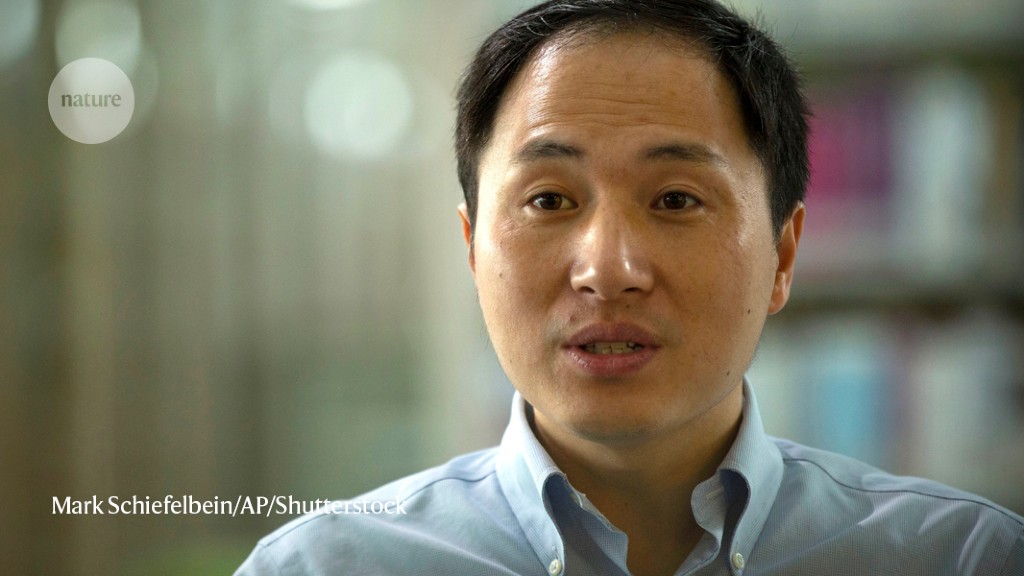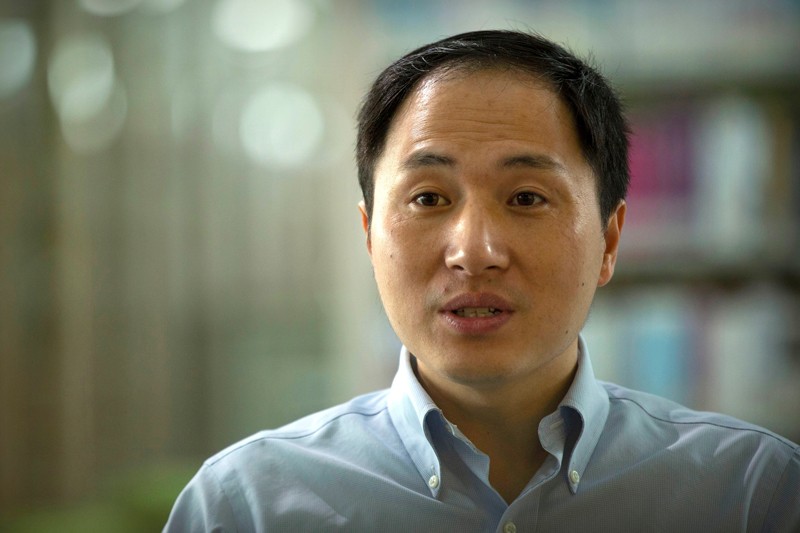Two prominent bioethicists in China are calling on the government to set up a research centre dedicated to ensuring the well-being of the first children born with edited genomes. Scientists have welcomed the discussion, but many are concerned that the pair’s approach would lead to unnecessary surveillance of the children.
The proposal comes ahead of the possibly imminent release from prison of He Jiankui, the researcher who in 2018 shocked the world by announcing that he had created babies with altered genomes. He’s actions were widely condemned by scientists around the world, who called for a global moratorium on editing embryos destined for implantation. Several ethics committees have since concluded that the technology should not be used to make changes that can be passed on.
Researchers say that the latest proposal, in a document by Qiu Renzong at the Chinese Academy of Social Science in Beijing and Lei Ruipeng at the Huazhong University of Science and Technology in Wuhan, is the first to discuss how to manage the children’s unique situation. “It’s an important document,” and a welcome move by researchers in China, says Gaetan Burgio, a geneticist at the Australian National University in Canberra.
The document — which Qiu and Lei have shared with various scientists, several Chinese ministries and to Nature, but which has not yet been published — states that the children need special protections because they’re a “vulnerable group”. Gene editing could have created errors in the children’s genomes, which could be passed to their children. They recommend regular sequencing of the children’s genomes to check for “abnormalities”, including conducting genetic tests of their embryos in the future.
Qiu and Ruipeng also recommend that He contribute to the children’s medical expenses, and take primary financial, moral and legal responsibility for their health and well-being, along with the Southern University of Science and Technology in Shenzhen, with which He was affiliated, and the government.
But Joy Zhang, a sociologist at the University of Kent in Canterbury, UK, says it is difficult for scientists to know what recommendations to make because there is almost no information about the children’s current condition, and the circumstances of their conception. “China has kept everything so tight,” she says.
Global shock
In 2018, the world learned that He had implanted embryos in which he had used CRISPR–Cas9 to edit a gene known as CCR5, which encodes an HIV co-receptor, with the goal of making them resistant to the virus. The implantation led to the birth of twins in 2018, and a third child was later born to separate parents. The parents had agreed to the treatment because the fathers were HIV-positive and the mothers were HIV-negative, and the couples were barred from access to alternative assisted-reproduction technologies in China.
In December 2019, He was sentenced to three years in prison. Sources close to him say that he should be released soon. Qiu says he might be assigned a research position.
Eben Kirksey, a medical anthropologist at Alfred Deakin Institute in Melbourne, Australia, who has written a book on human genome-editing1, agrees that He should shoulder some responsibility for the children. He promised that they would receive health insurance for the first 18 years of their lives, but because the twins were born prematurely, they were initially denied coverage, which He initially stepped in to pay, according to Kirksey’s investigations. He and the university should make good on promises of medical assistance, Kirksey says.
The children, who are now toddlers, are the only known children with edited genomes. It is possible that others have been born since, but Qiu says that this is unlikely to have happened in China, where researchers would have been deterred by He’s harsh punishment. “No scientist will dare to further cross the line,” he says.
But other researchers have stated their interest in implanting genome-edited embryos, including Denis Rebrikov, a molecular biologist and geneticist at the Kulakov National Medical Research Center for Obstetrics, Gynecology and Perinatology in Moscow. He has developed a technique to use CRISPR to edit mutations in a gene linked to deafness, called GJB2, but he has yet to implant a genome-edited embryo owing to a lack of interest among deaf couples in Russia. “I am sure that sooner or later we will find a couple who want to give birth to a hearing child,” says Rebrikov. When he does, he plans to edit the embryos and store them before requesting permission from Russian regulatory bodies to implant them.
The three children in China “will not be the last” babies with edited genomes, says Ayo Wahlberg, an anthropologist specializing in reproductive technologies at the University of Copenhagen.
Excessive surveillance
Qiu and Lei drafted their recommendations with the three girls in mind, although Qiu says they could apply to future children. But researchers have expressed several concerns.
Kirksey agrees that the girls are vulnerable because they could encounter psychological and social risks. Their experiences should be researchers’ and societies’ main concern. But he disagrees with the level of testing that Qiu and Lei propose, which he sees as excessive, because there is no clear evidence that genome-editing has harmed the children. “Special protections could also translate into more intense surveillance.”
Qiu agrees that the children could be unaffected. “This is our wish. But who could be sure of it?” He says that their proposal, including regular genome monitoring, addresses that uncertainty.
Burgio says that regular sequencing will be needed for the rest of the girls’ lives to assess the extent of the edits and their potential health implications. More advanced techniques have emerged since 2018, and these should be used to take a closer look at the site where the genomes were edited, for signs of any unwanted changes, he says. “We don’t know which type of genetic mutations will be carried out into adulthood and passed on to the next generation,” says Burgio.
But Zhang worries that without clearly defined roles and responsibilities, the document opens up future abuses of power. The main risk to the children is likely to be the sociopolitical stigma that they could face, so “putting them in the hands of a few elites will only add to that, not help”, she says.
Kirksey says that lessons should be taken from the story of Louise Brown, who in 1978 became the first person to be born through in vitro fertilization — a procedure that was highly controversial at the time. “She was subjected to all kinds of medical tests through the course of her life,” says Kirksey, who says Brown has described her struggles with leading a normal life. “The story in the long run about these children will be about a struggle to be normal if they do become public figures like Louise Brown.”








More News
Tackling ‘wicked’ problems calls for engineers with social responsibility
Author Correction: Bitter taste receptor activation by cholesterol and an intracellular tastant – Nature
Audio long read: How does ChatGPT ‘think’? Psychology and neuroscience crack open AI large language models